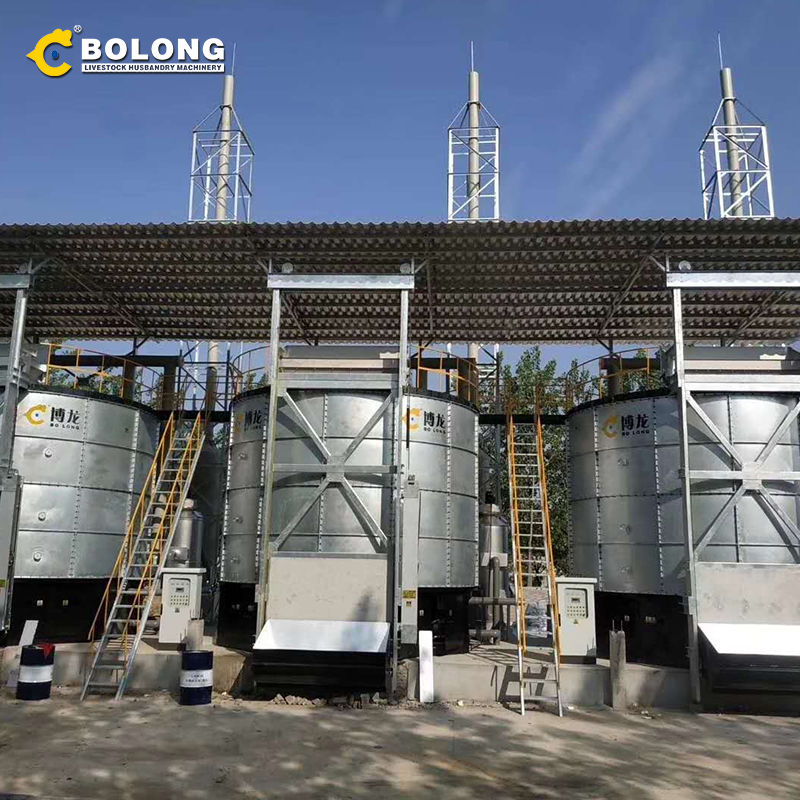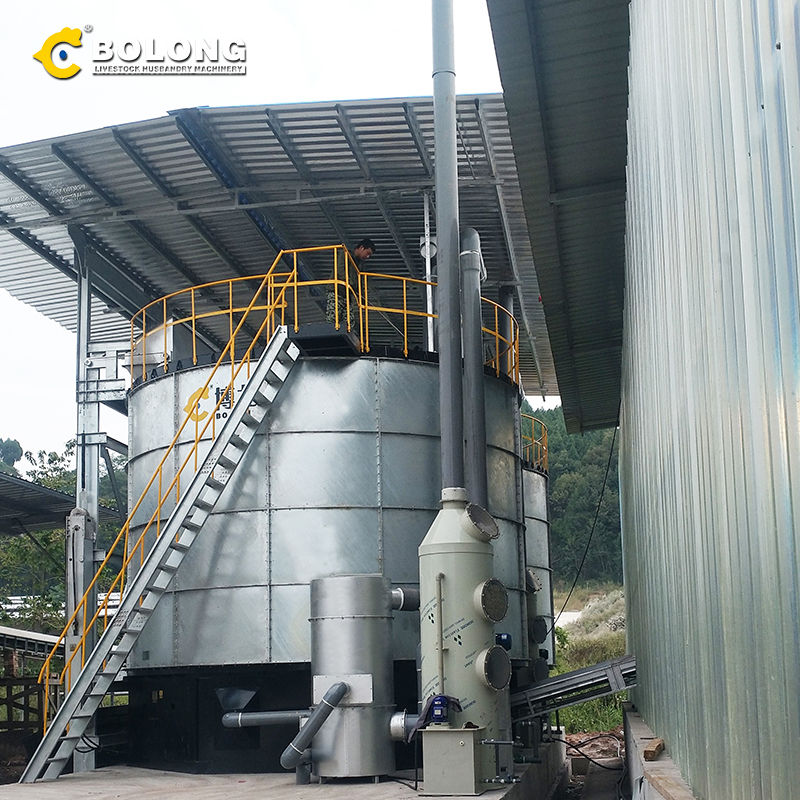There is a lot of approaches for the treatment of agricultural waste, and it depends on how you develop a rational management plan and flexibly use these technologies. This will aid in promoting sustainable agricultural production while achieving resource recovery and reuse.
This is the classical approach to treat farmland residues such as straw or branches from orchards. In this case organic materials are stacked in the field to decompose by natural fermentation before being turned into soil for manure. It’s such an easy way yet time consuming due to fermentation process that takes place after quite some time with certain environmental conditions requirements.
Mechanical mixing together with adding microbial agents accelerate decomposition of organic materials resulting into high-quality organic fertilizer at last. This method processes rapidly and is well-suited for large-scale livestock and poultry manure treatment; however, specialized equipment and technical support are necessary.
It combines the advantages of both biomixing and composting. First, the volume of organic matter is quickly reduced through biological mixing, and then composting and fermentation are carried out to finally produce high-quality organic fertilizer. This combination not only improves the processing efficiency, but also ensures the quality of fertilizer.

The above approaches can mitigate the negative consequences of agricultural wastes and the main goal is to convert these agricultural wastes into organic fertilizers. We could therefore go for a more efficient alternative.
Commercial composting tanks are machinery that efficiently turns agricultural or farm waste, kitchen refuse and other biodegradable matter into valuable compost. Usually, such tanks are operated by professional companies involved in commercial composting which have capacity for large quantities of organic waste. By so doing, they aid in reducing rubbish incineration or landfills while at the same time promoting recycling of organic materials as well as reducing chemical fertilizer dependency through using them as soil conditioners. In these commercial composting tanks, fermentation is regulated and microorganisms decompose the organic substance under right temperature and oxygen conditions thereby generating heat which destroys germs. The matured treated compost can be utilized as a high-grade manure; spread over fields and gardens to enhance fertility levels thus leading to increased crop produce per unit area. This whole process also reduces pollution in the environment, enhances plant health and benefits businesses economically. Therefore, applying commercial composting tanks conforms with circular economy policy and sustainable development of agriculture as well as being vital tools in the promotion of modern agriculture. Bolong specializes in large composting tanks. It only takes an average of seven days for agricultural waste to be fully decomposed in the tank and converted into high-quality organic fertilizer.
One can easily improve soil quality by adding compost, which is a fantastic soil conditioner. It is full of organic matter and helps to enrich the soil and enhance its structure. For example, once you apply it in your garden, water holding capacity and cation exchange ability both increases hence fertility improves.
When compost is applied there is an improved environment for soil ecology that encourages sound development of the crop root system thus making the crops more resistant to pests.
Compost can reduce the need for chemical fertilizers because it contributes to enhancing the nutritional status in soil thereby lowering residues levels in crops.
This way useful resources are reaped from agricultural wastes which results into cost reduction of dealing with agricultural waste as well as decrease environmental pressure arising from their treatment at site process on farms rather than being transported or disposed off externally.”
The treatment of organic waste by composting reduces the amount of waste landfill, thereby reducing greenhouse gas emissions, especially methane. At the same time, the use of compost can also reduce the pollution that chemical fertilizers and pesticides may cause to soil and water bodies.

The composting system is not only an important part of the win-win strategy for agricultural production and environmental protection, but also a key link in promoting the transformation of agriculture to green development and promoting the construction of ecological civilization. The implementation of this system has far-reaching significance for the sustainable development of agriculture and the environment. On a broader level, the promotion and use of the composting system can also stimulate the green transformation of the agricultural industry chain, promote the development of related industries in a more environmentally friendly and efficient direction, and promote the whole society’s awareness and acceptance of sustainable lifestyles. In the long run, the composting system can not only provide a healthier and safer food source for the current generation, but also preserve a more livable environment for future generations. Therefore, the composting system is a bridge connecting modern agricultural production and ecological environmental protection, and it has irreplaceable strategic significance for achieving green development of agriculture and building an ecological civilization.